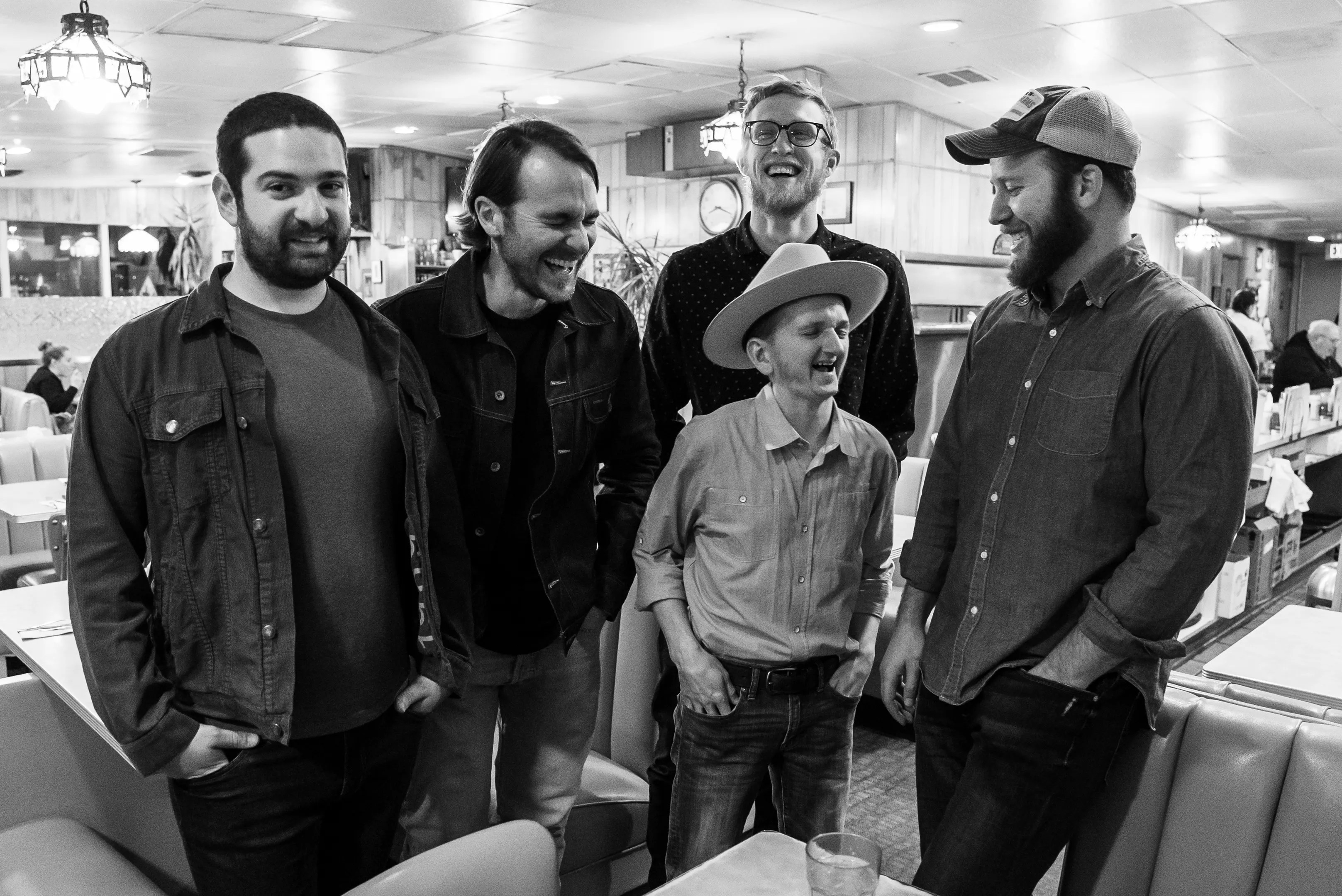
John Pierce

Audio By Carbonatix
The twelve tracks on Promise of Tomorrow, the debut from Denver bluegrass quintet Turkeyfoot, evoke imagery from the Great Depression: Okie families piling their jalopies high with their meager possessions and fleeing westward to escape the Dust Bowl.
And while the songs might not overtly tackle one of the darkest periods of the twentieth century, it’s difficult to listen to the album and not come away feeling like Tom Joad – or, at the very least, the turtle crossing the road in chapter three of The Grapes of Wrath. Sonically, the album goes beyond bluegrass, drawing from a variety of country and Americana influences.
The songs feel timely in this rancid Year of Our Lord 2020, when fascism is resurgent and the unemployment rate is projected to swell above 20 percent. But both the album’s subject matter and its sound are inspired by the past.
“I think some of our influences still come from that era, because you have guys like Jimmie Rodgers,” says mandolin player Jordan Brandenburg. “Some of the most famous country songs are out of the Great Depression.”
The band, made up of banjoist Alex Koukov, fiddler Bridger Dunnagan, guitarist Dave Pailet, mandolinist Brandenburg and Michael Rudolph on bass, drops Promise of Tomorrow on June 5. The album was recorded at Vermillion Studios over four days with engineer Eric Wiggs.
Rudolph notes that bluegrass music speaks to past and current concerns about finances and personal health.
“Bluegrass was really a kind of country music to start out with, very rural,” he explains. “There are a lot of themes of poverty and adversity and hardship, and that’s just kind of inherent in bluegrass. But it’s also this very happy kind of music, and a lot of it is [about] how you triumph and work through adversity.”
He characterizes Promise of Tomorrow as a “Colorado-Western bluegrass” album that can serve as an introduction to listeners who want to dive into the local scene.
“It’s approachable,” he says. “It’s pretty listenable. It’s not experimental. It captures that sound pretty well.”
Brandenburg has the family history to be able to wax poetic about the Great Depression. His maternal grandparents were dirt-poor farmers in southwest Oklahoma in the 1930s. His grandfather eventually left the Sooner State for the oil fields of Colorado and, later, an airplane-mechanic gig in California. Both states offered greener pastures, but a respiratory condition brought on by the foul air of the Dust Bowl would eventually take his life.
“The song ‘Promises of Tomorrow’ is about my grandfather,” Brandenburg says. “He died when I was seven, from an asthma attack, and I didn’t get to know him very well. … My grandma ended up moving in with us. She was a storyteller, and it was important for her to tell these stories.”
He says he was staring at the Pacific Ocean when the inspiration for the song came to him, and he wrote it in one sitting.
“What would it have been like to grow up in the Dust Bowl in Oklahoma, one of the worst periods in American history, just regionally – what it did to the land, and what it did to the people – and then to see the Pacific Ocean?” he muses. “What a sight that would have been.”
Turkeyfoot’s members met at a bluegrass jam session a few years back and began performing around a single microphone on stage. In 2017, they took second place in the RockyGrass band competition.
Rudolph, a medical doctor, says the bluegrass community in Denver is strong, but it’s hard to get five guys together to play safely in the age of COVID-19. With the exception of musicians who already live together, jamming and performing is on hold for the time being.
“We all sort of agreed early on that we would do our best to really follow social guidelines,” Rudolph says. “I mean, for me, professionally, it’s important to do that, just to be consistent with what I’m recommending to patients and other people.”
Brandenburg says that the changes in the world over the past several months have led to what he calls “an ice age” in terms of live shows, but he hopes the band can, in the next several months, play some limited outdoor gatherings like house concerts.
“That’s something we love to do anyway,” he says. “That’s also where acoustic bands can shine – in smaller crowds in an outdoor setting, and just letting the instruments do what they do.”
For more information, visit turkeyfootbluegrass.com.